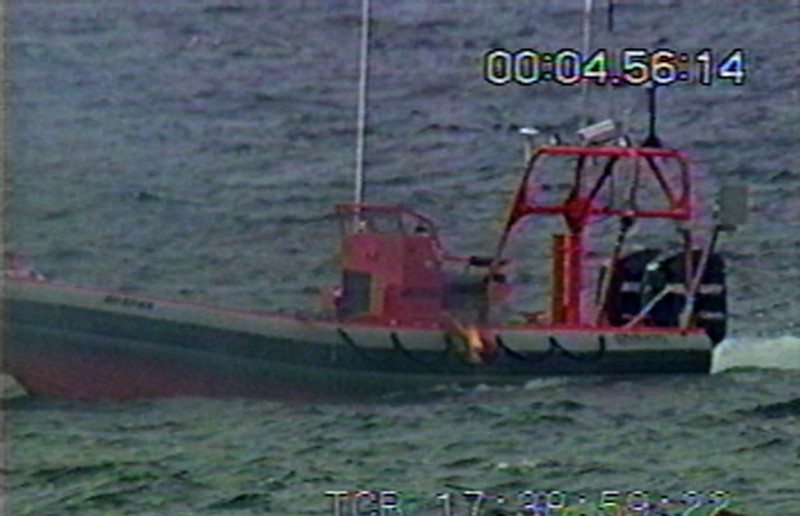The U.S. Navy and Northrop Grumman have successfully demonstrated high-energy, solid-state laser defenses at sea by completing a “counter-material” test of the Maritime Laser Demonstrator (MLD) against small boats.
Northrop Grumman designed and built the MLD for the Office of Naval Research, leveraging a laser built by Northrop Grumman for the U.S. Army Space and Missile Defense Command /Army Forces Strategic Command and the High Energy Laser Joint Technology Office.
Open ocean tests were conducted between October 2010 and April 2011 at the Pacific Ocean Test Range near San Nicolas Island off the Central California coast. For these tests, the laser system was installed on the Navy’s Self Defense Test Ship, the USS Paul Foster.
While underway, the MLD system initially tracked and lased land targets. The solid-state, directed energy system then tracked and damaged moving, remotely piloted, unmanned small boats traveling at representative speeds and ranges, company executives said.
“The results show that all critical technologies for an operational laser weapon system are mature enough to begin a formal weapon system development program,” said Steve Hixson, vice president, space and directed energy systems at Northrop Grumman’s Aerospace Systems sector. “Solid-state laser weapons are ready to transition to the fleet.”
Hixson said the MLD team accomplished several notable firsts, including:
- First Navy laser system to go to sea, installed on a decommissioned Spruance-class destroyer, for the program’s culminating demonstration;
- First Navy laser system to be integrated with a ship’s radar and navigation system; and
- First electric laser weapon to be fired at sea from a moving platform. Other tests of solid-state lasers for the Navy have been conducted from land-based positions.
“During the latest demonstrations, MLD spent a total of three days at sea, during which we operated the laser at high power more than 35 times,” according to Dan Wildt, vice president, directed energy systems. “The laser withstood the stresses of wave heights up to seven-and-a-half feet.”
Laser Maturity
“Based on Northrop Grumman’s proven laser technology developed for the Defense Department’s Joint High Power Solid State Laser (JHPSSL) program, the MLD system is proving the readiness of laser systems for shipboard use,” Wildt said.
“This is phenomenal for a first-generation demonstrator, and proves we know how to fully ruggedize operational systems to follow. We have demonstrated the ability of lasers to address one of several threats of interest to Navy,” he continued.
Results of the at-sea tests will be used by the Navy to help guide engineering manufacturing development phase of a Navy laser weapon system and transition it to a program of record for up to eight classes of ships the Navy has identified as likely platforms.
Capability and Affordability
According to Jay Marmo, the company’s MLD program manager, the open ocean tests collectively showed that a laser weapon system can effectively operate in a challenging maritime environment and overcome such obstacles as atmospheric conditions, waves and the motions of both the host and target vessels, while also meeting capability requirements for self-defense.
“In the future, lasers will operate synergistically with kinetic energy weapons to optimize ship defenses,” Marmo said. “Lasers can address a number of emerging threats, enabling the fleet to maintain freedom of operation, yet with a very low cost of operation. Lasers will offset the use of higher cost kinetic defenses for a number of these threats, substantially reducing the total cost of ship defense.”
As a primary provider of high-power laser defense systems for the U.S. military, Northrop Grumman has built a number of high-energy lasers that have shot down airborne threats in flight. Major laser systems the company has developed include Mid Infrared Advanced Chemical Laser, Alpha, Tactical High Energy Laser and the megawatt-class laser aboard the Airborne Laser Test Bed, along with the JHPSSL system.











